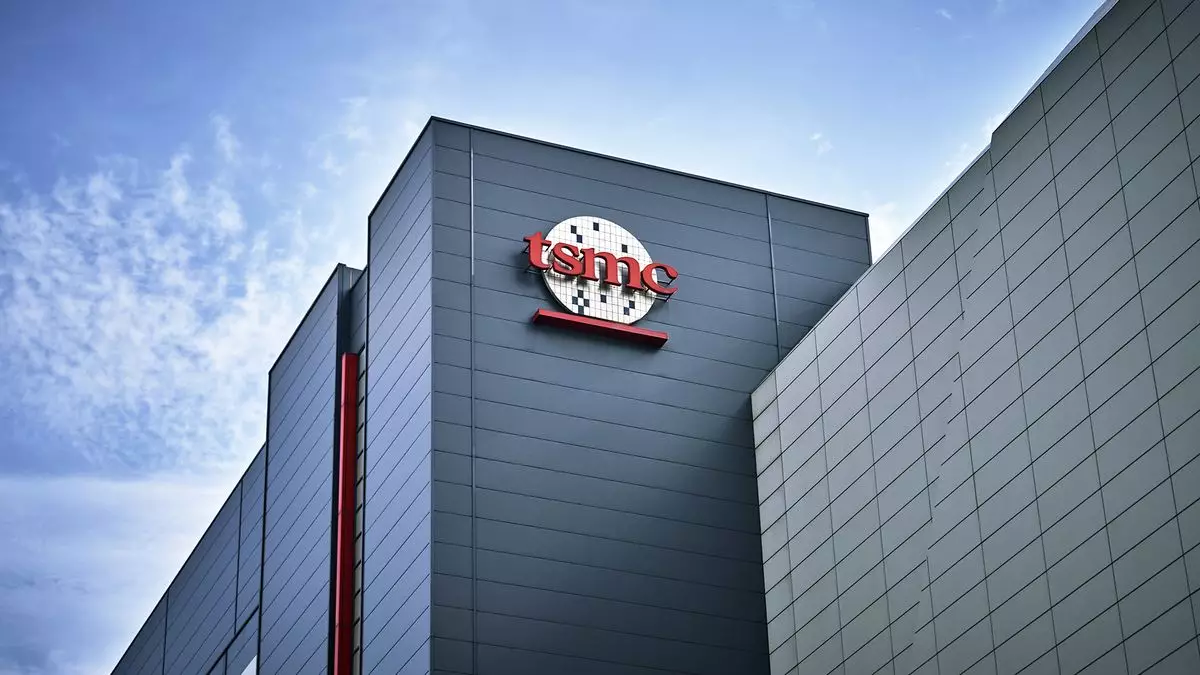In an increasingly interconnected global economy, semiconductor manufacturers like TSMC (Taiwan Semiconductor Manufacturing Company) find themselves walking a tightrope, balancing profitability with the complexities of international trade regulations. Recent revelations suggest that TSMC may face a hefty fine of over $1 billion from the U.S. Department of Commerce due to alleged infractions related to export controls. This situation highlights not just the financial stakes at play for an industry titan but also the broader implications of geopolitics on technology supply chains.
The potential liabilities for TSMC stem from accusations that it has unwittingly facilitated the export of technology to Huawei, a Chinese telecom giant already on the U.S. government’s Entity List. This list effectively blocks American companies from trading with firms that pose national security risks. However, TSMC’s position as a critical supplier means that even indirect links to Huawei can raise red flags, leading to complicated legal and financial repercussions.
Understanding the Allegations and Regulations
The $1 billion fine mentioned in reports is not merely arbitrary; it is grounded in specific export control regulations which allow for penalties up to twice the value of transactions deemed in violation. The core issue revolves around whether TSMC knowingly supplied components that ended up in Huawei’s hands, particularly concerning their Ascend 910B AI processor. TSMC’s representative, Nina Kao, has stated that the company ceased trading with Huawei back in 2020, raising questions about the validity of these accusations and the extent to which TSMC should be held accountable for its supply chain dynamics.
What makes this situation particularly convoluted is the role of Sophgo, a design company that has been identified as an intermediary between TSMC and Huawei. The U.S. government moved to place Sophgo on the Entity List, further complicating TSMC’s obligations. While TSMC might argue that it was not privy to such dealings, the reality is that any association with entities on this list could severely impact its ability to operate freely in the market.
The Stakes of Technology Supply Chains
For TSMC, a fine of this magnitude is hardly trivial, even if it does not threaten the company’s long-term viability. With plans to invest $100 billion in U.S. facilities, TSMC aims to solidify its position in the semiconductor landscape amid tightening restrictions and geopolitical tensions. However, this investment strategy does not insulate the company from export controls; rather, it puts a spotlight on its operational practices and compliance measures with respect to international trade.
Moreover, the rich tapestry of global technology and trade is fraught with risk. As the U.S. intensifies scrutiny of its competitors, tech companies are left to navigate a labyrinth of rules and regulations that can shift rapidly. TSMC’s situation is emblematic of a larger trend where the tensions between nations can directly impact business decisions, operational strategies, and market outcomes.
Potential Outcomes and Implications
While discussions about the potential fine continue, the ramifications of such a settlement could ripple across the semiconductor supply chain. Should TSMC be found culpable, it could have a deterrent effect on other companies contemplating partnerships or transactions with entities that could be interpreted as breaches of U.S. law. In a world where technological innovation increasingly hinges on collaboration, the chilling effects of such penalties could stifle the very innovation that drives economic growth.
Furthermore, the repercussions extend beyond mere financial concerns. If TSMC is found in violation, it may face increased oversight and additional compliance costs moving forward. The implications for smaller players in the semiconductor industry could be dire, potentially squeezing out competition and benefiting a select few who can afford to adapt to the stringent regulatory environment.
TSMC’s navigational challenges in this turbulent landscape highlight an urgent need for clarity and cooperation in international tech trade rules. As companies continue to grapple with the delicate balance of innovation and regulation, the stakes will only rise, making every move in the semiconductor arena a potentially pivotal one.


Leave a Reply